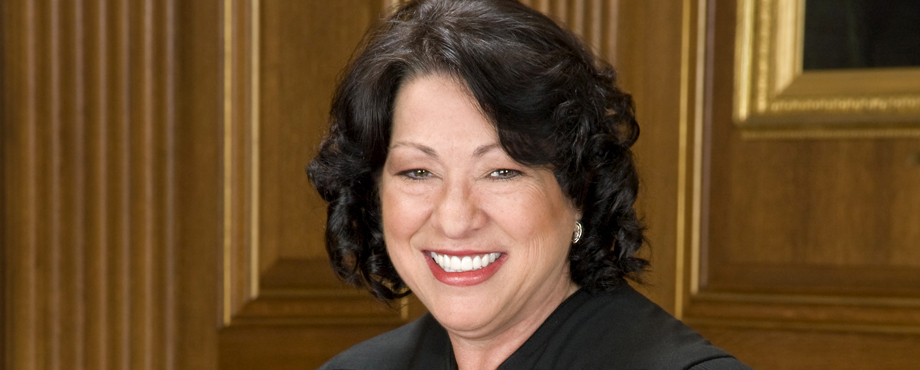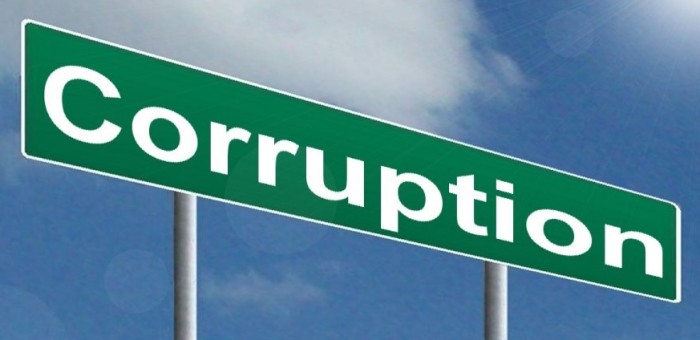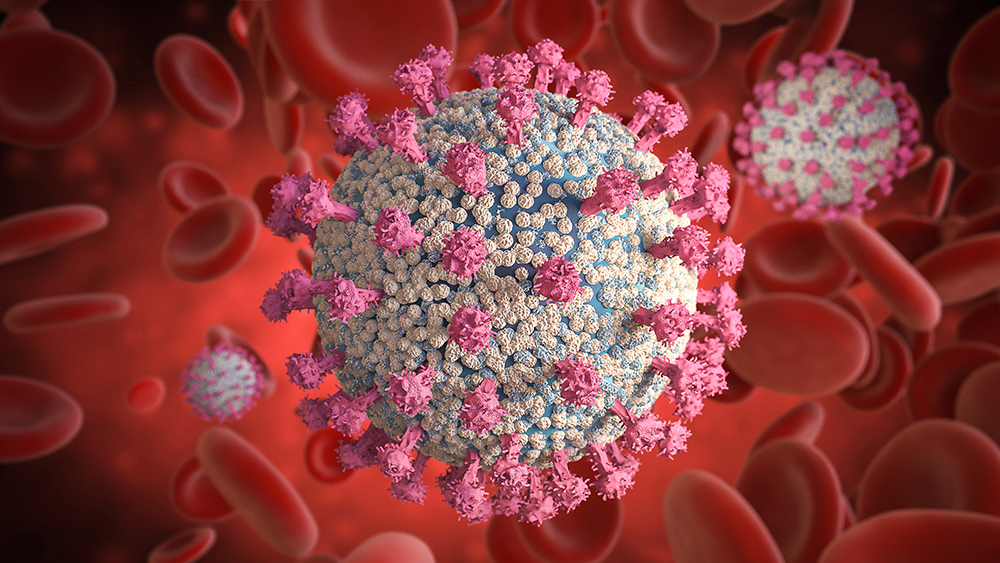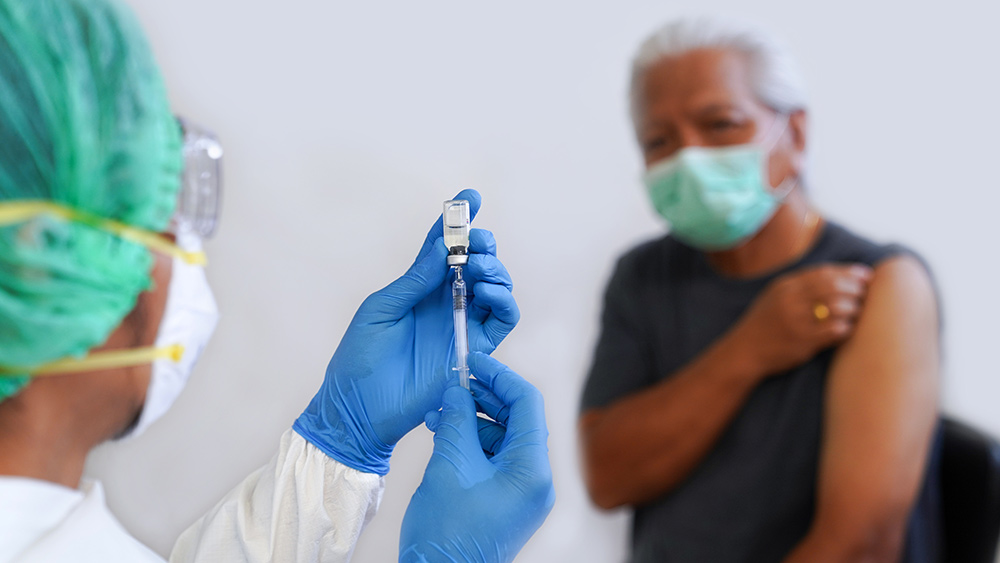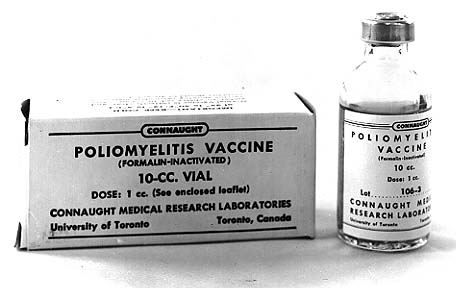Singapore suspends use of flu jabs after deaths in South Korea
11/06/2020 / By Ramon Tomey

Singapore has announced that it will temporarily cease the use of two flu vaccines after the post-vaccination death of 48 people in South Korea. With this move, the Southeast Asian city-state is among the first countries to halt the vaccines’ use for immunization programs.
The country’s Ministry of Health (MOH) said in an Oct. 25 statement that the suspension served as a “precautionary measure following reported deaths after influenza vaccination in South Korea.” While Singapore has not seen any deaths associated with flu immunization, the ministry and the Health Sciences Authority (HSA) are monitoring the situation closely. The MOH statement said: “HSA is in touch with the South Korean authorities for further information as they investigate to determine if the deaths are related to influenza vaccinations.”
South Korea has reported a total of 48 deaths following seasonal inoculation as of Oct. 24, Yonhap News Agency reported. Despite the fatalities, South Korean Health Minister Park Neung-hoo said the country’s flu vaccination program will continue as its suspension would be “unscientific” and “dangerous.”
South Korean officials stated the casualties received seven influenza vaccine brands — two of which were available in Singapore. Thus, health authorities informed health practitioners to halt the use of SK Bioscience’s SKYCellflu Quadrivalent and Sanofi’s VaxigripTetra – but two other flu vaccines brought into Singapore for the Northern Hemisphere 2020-2021 influenza season may continue to be used.
The MOH said Singaporeans due to be immunized against the flu, including adults and children under their respective national immunization schedules, may continue to do so using other vaccine brands.
Even Singapore, whose health system is one of the world’s best, is now aware of vaccine dangers
Vaccines approved for use in the city-state have been evaluated by the HSA to ensure they meet “required international standards of quality, safety and efficacy,” the MOH remarked in its statement. It added that the HSA continues to oversee approved vaccine safety using an adverse monitoring system, which relies on the network of local healthcare professionals and international regulatory agencies to pick up adverse events suspected to be associated with the vaccines.
Nevertheless, the Singaporean health ministry espoused that flu vaccination was “generally safe and well-tolerated.”
According to the ministry, vaccination provided “protection against seasonal influenza viruses” and reduced “the risk of complications and deaths” – most especially for vulnerable populations such as the elderly, children, pregnant women and those with pre-existing conditions.
It acknowledged “common side effects” following flu vaccination – such as soreness and redness where the vaccine was injected, fever, head and muscle aches, fatigue and nausea – and said these were “generally mild” and resolve on their own.
For more serious side effects such as high fever, breathing difficulties, wheezing and swelling around the eye area, the MOH advised seeking immediate medical attention.
However, what happened to the 48 South Koreans following their immunization was not just a common side effect – but a clear example of the risks associated with receiving toxic vaccines. (Related: If we ever do get a coronavirus vaccine, will it contain toxic ingredients?)
The Little Red Dot’s progressive healthcare system faces the challenge of unvaccinated Singaporeans
A 2019 opinion piece by associate professors Hsu Li Yang and Alex Richard Cook of the National University of Singapore‘s Saw Swee Hock School of Public Health remarked that the country had very low adult vaccination rates, most especially for influenza jabs.
Yang and Cook outlined a number of suggestions in their TODAY Online article to convince people to get vaccinated – such as educating the general population about herd immunity, incorporating vaccination reminders into mobile health apps, urging primary care physicians to recommend vaccinations and incorporating flu shots into workplace health initiatives.
The associate professors also urged including vaccines into the country’s collaborative prescribing program despite the controversy the move may generate. Under the program, public sector nurses and pharmacists in Singapore can legally prescribe medicines without a doctor’s counter-signature. Yang and Cook also called to permit experienced pharmacists and nurses to prescribe medicines under the program.
Despite having a world-class healthcare system, health freedom isn’t exactly a priority in Singapore. Opting out of lethal vaccinations is never an option in the Little Red Dot.
Sources include:
Submit a correction >>
Tagged Under:
adult vaccination, Flu shots, flu vaccination, health freedom, Health Sciences Authority, health system, HSA, immunization schedule, influenza virus, mandatory vaccination, Sanofi, seasonal inoculation, Singapore, SK Bioscience, vaccination deaths, Vaccine deaths, vaccine injury, vaccine safety, vaccine wars, vaccines
This article may contain statements that reflect the opinion of the author
RECENT NEWS & ARTICLES
VaccineDamage.News is a fact-based public education website published by Vaccine Damage News Features, LLC.
All content copyright © 2018 by Vaccine Damage News Features, LLC.
Contact Us with Tips or Corrections
All trademarks, registered trademarks and servicemarks mentioned on this site are the property of their respective owners.










